The second Greater Budapest Mission Conference on November 10 discussed the missionary significance of the capital, the spiritual and regional consequences of religious changes, the possibilities for restructuring the church, and a model that can be followed as an example.
At the event held at the Ráday House in Budapest, the organizers planned to continue the joint reflection that began at last year's meeting in Káposztásmegyer in a more practical form. Following a sociological lecture, conference participants listened to two presentations, which were followed by reflections from one bishop and four dioceses. At the end of the day, small group work provided an opportunity to jointly process what had been said.

Photo: Tamás Füle
"The harvest is plentiful, but the workers are few."
In his opening remarks, Pastor András Lovas, missionary representative for the Dunamellék region, summarized in three points what is necessary for the gospel to permeate the city, for the good news to reach more people, for congregations to be revitalized, and for more congregations to be born. Jesus did this work and called all his followers to do the same, he added.
1.The merciful heart of the Father is revealed in us
“When he saw the crowds, he had compassion on them, because they were harassed and helpless, like sheep without a shepherd” (Matthew 9:36).
"Jesus' mercy reveals the Father's mercy. This is not human compassion, but the compassion in God's heart for a broken world and its members. Jesus' ministry springs from this," said András Lovas. He pointed out that the word for compassion in Old Testament Hebrew refers to the womb, and in New Testament Greek to the internal organs, illustrating how deeply these words spring from Jesus. "We often read in the New Testament when Jesus meets someone in need: 'he had compassion and...' When Christ's love compels us, it opens our eyes and makes our hearts merciful. We do not do mission because otherwise the church will die out, but because when Jesus looks at the multitude, the Father's heart is pained. Jesus embodies this and calls us to do the same – let us examine: where is my heart in relation to the Father's heart?"
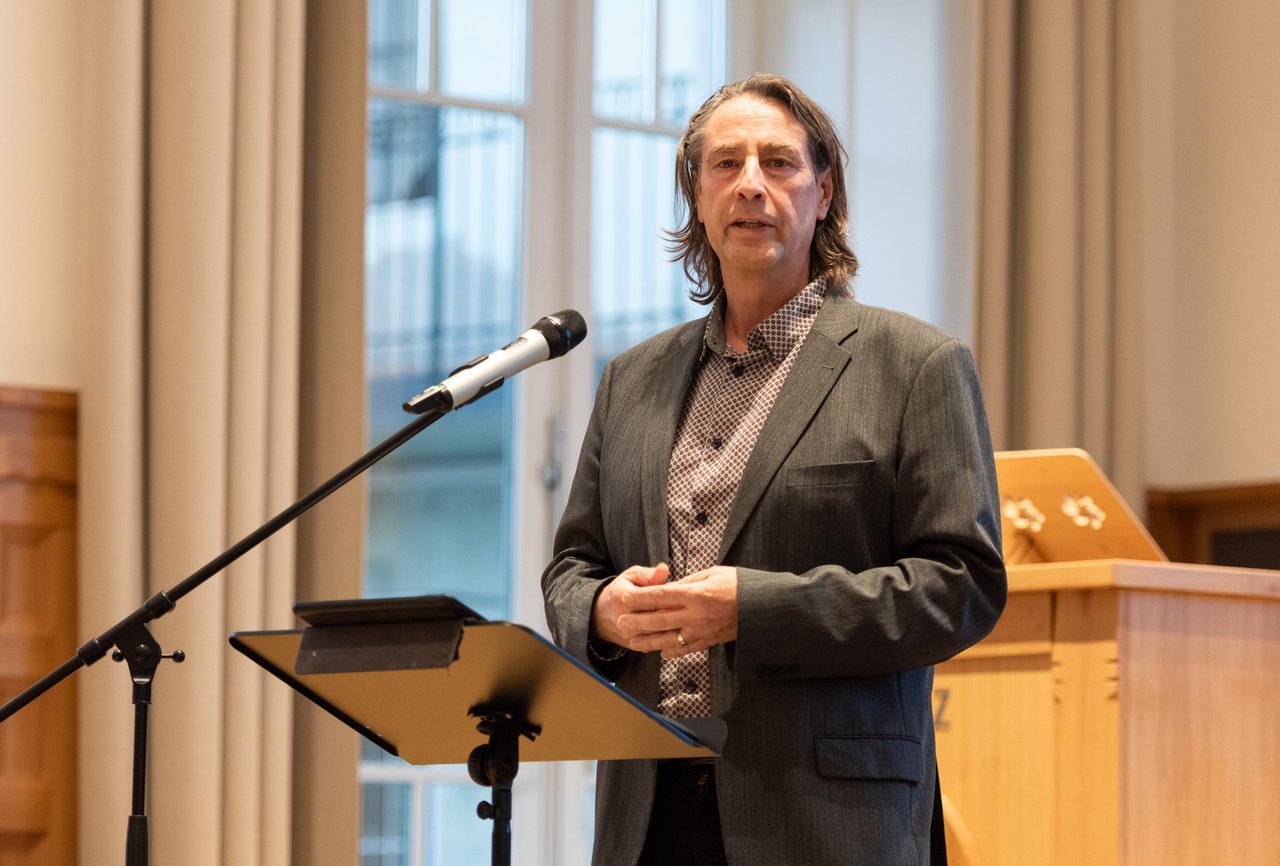
Photo: Tamás Füle
2. Holistic ministry
“Jesus went through all the towns and villages, teaching in their synagogues, proclaiming the gospel of the kingdom, and healing every disease and sickness.” (Matthew 9:36)
“For Jesus, words and deeds appear together in the service of God’s kingdom. Teaching, preaching the gospel, and healing have become a separate reality for us today," said the pastor, referring to Jesus' statement in the synagogue in Nazareth about the purpose of his ministry (see Luke 4:18). "The gospel must include the reality of healing and liberation. Without this, it is pointless to talk about mission. If our hearts are moved and we are merciful, then we can ask the Father to give us the strength to do this."
3. Prayer
"...ask the Lord of the harvest to send workers into his harvest." (Matthew 9:38)
"People don't know what they are thirsting for. Where and how will this happen? Jesus also knows the limitations of his own ministry, which is bound by time and space," continued András Lovas, adding that if we ask the Lord of the harvest, two things can happen: he will send us, or we will have to call others into service. “We need to trust much more in what God can do with people. The gospel can permeate the city through people and faithful, called communities.”
At the end of his sermon, András Lovas led the conference participants in a joint prayer and asked God for a compassionate heart, for our healing, so that we ourselves may become instruments of healing.
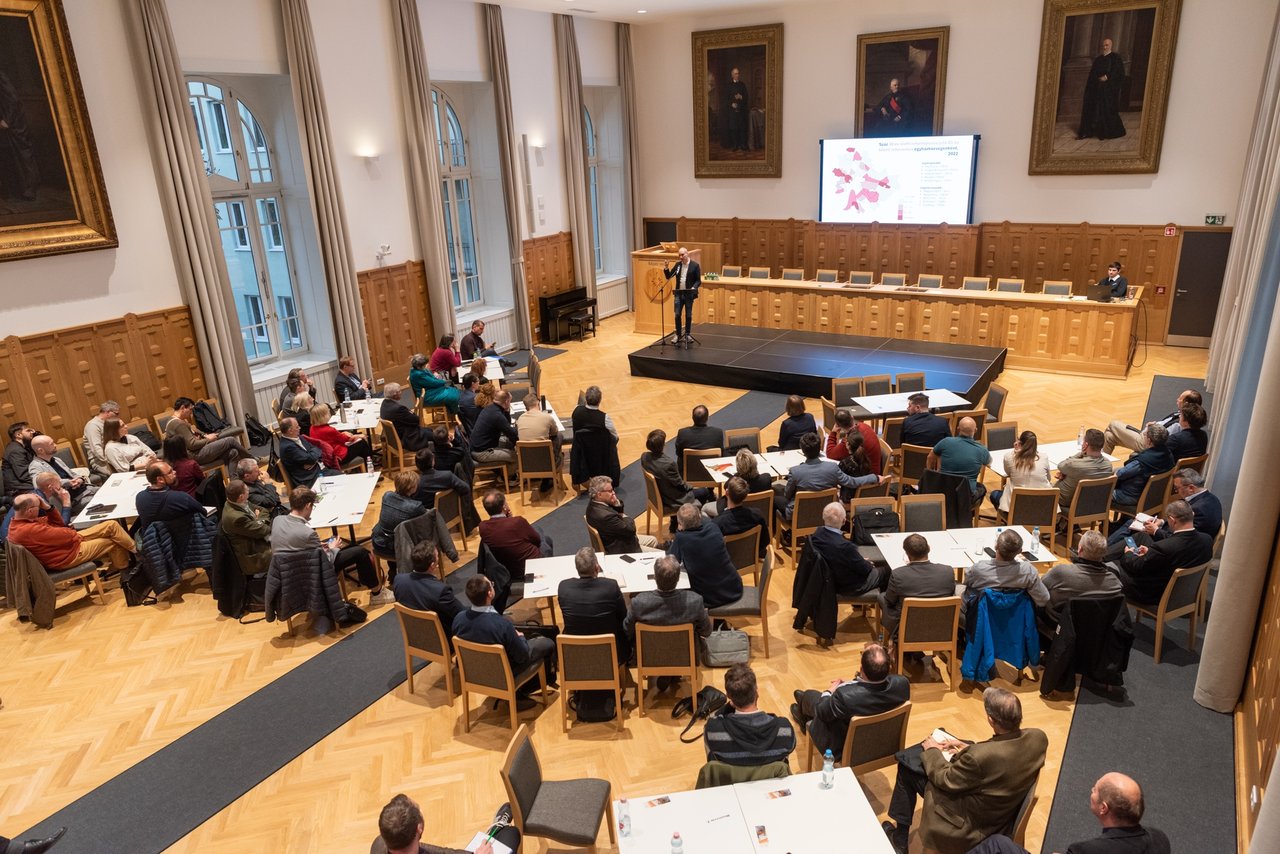
Photo: Tamás Füle
Budapest is important, Budapest is big, we are changing together with Budapest
In his presentation entitled "A turning point in the city? - Opportunities for the Reformed mission in Budapest in an age of diversity," sociologist Bálint Duráczky attempted to answer the question of what characterizes religious change in the capital, how this can be seen in statistics, and how all this affects the congregations. He formulated five basic theses regarding the importance of Budapest: the city is a social pioneer, a cultural center, densely populated, socially diverse, and challenges can be turned into opportunities.
According to the sociologist, religious "behaviour" practices used to stem from belonging, which could then be followed by personal faith. In most places today, the latter presupposes belonging, which ultimately shapes behaviour—although the two still coexist as parallel realities. Presenting his statistics, he showed that while the number of people participating in church ceremonies (e.g., those requesting baptism, marriage, and funeral services) is increasingly declining to the number of people listed in church registers, the proportion of people in society who are open to the supernatural is growing.
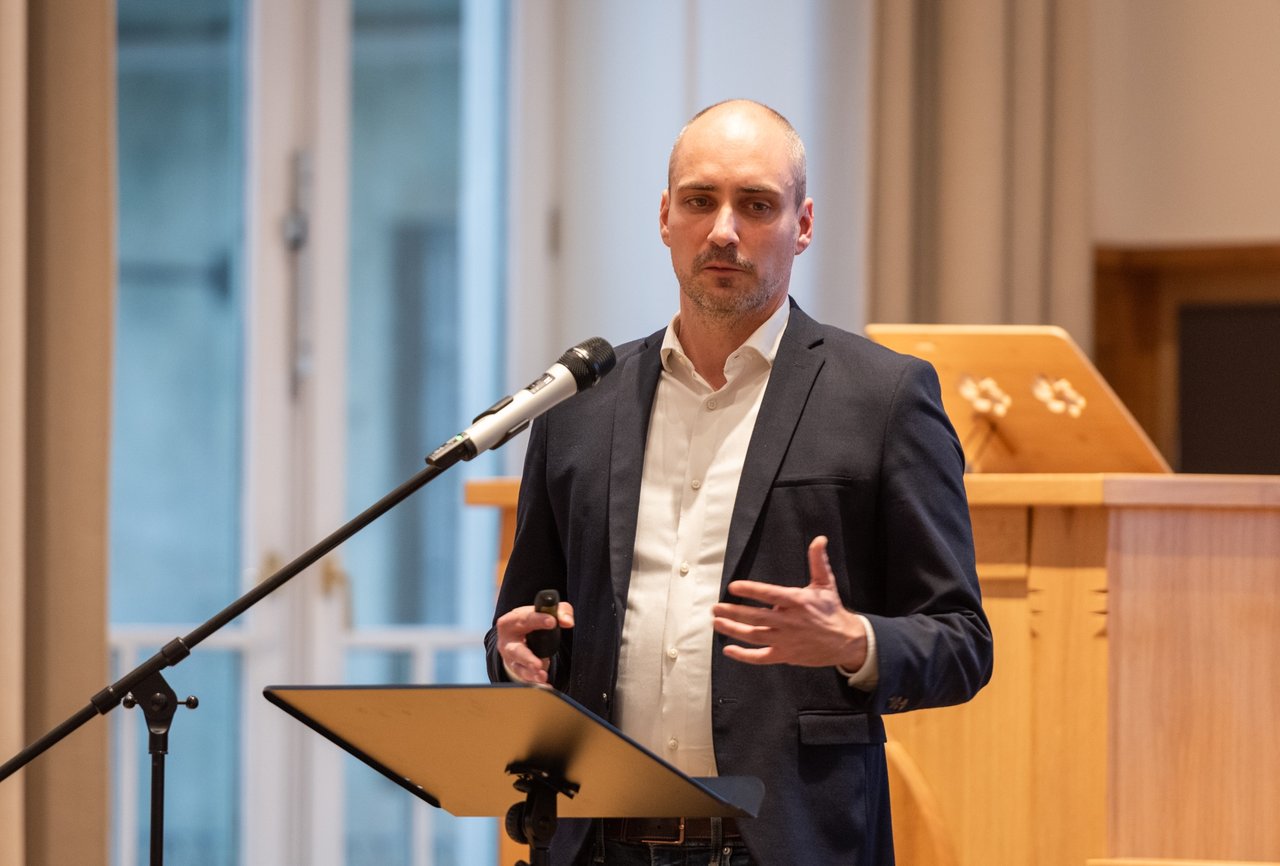
Photo: Tamás Füle
At the end of his presentation, Bálint Duráczky emphasized that a trend shift can be observed in Budapest: the territorial principle is becoming less and less important for younger generations in terms of congregational affiliation. In closing, he said, "If we ask the question of whether our country will become Christian, then we must first achieve a turnaround in Budapest. We should not fear the newly established congregations, because they will not draw people away from others, and at the same time, we must realize that we are changing along with Budapest—it is important that we actively do the latter." In other words, we carry out our mission in accordance with existing phenomena.
Self-sacrifice as the key
Lajos Szász, pastor and historian in Budafok, brought an example of the transformation of the church organization from a hundred years ago. In 1906-7, there was only one parish in the capital with six "parochial" circles (Kálvin Square, Józsefváros, Erzsébet-Terézváros, Buda, Kőbánya, and Zugló). As a result of gradual decentralization, the Reformed Diocese of Budapest was formed in 1932 with six old, three new, and four merged parishes, as well as the addition of Óbuda.

Photo: Tamás Füle
At the beginning of the change, 75% of the congregations' financial situation depended on the "church tax," which they were able to "collect" with varying degrees of success—which is why it was important how many people lived in a parish. The driving force behind the process was László Ravasz, bishop of the Danube region, who, when necessary, pushed through the necessary changes "over the heads" of the parishes – which, of course, often provoked the displeasure of the pastors. Lajos Szász also quoted Zsolt Benedek, then a member of the convention council, who considered congregations of 5,000 to be the ultimate goal—which, applied to Budapest, meant 20-22 mother parishes—assuming the self-sacrifice of the pastors.
An example from London
In the last presentation of the day, András Harmathy outlined the organizational changes that have taken place in the Church of England in London and what those serving in "Greater Budapest" can learn from this example. He gave five answers to the question "Why London?", which can be summarized as follows:
- Because it is a global city—everything that happens in the world appears here.
- England also has a historic church, whose structure and mindset are similar to those of the Hungarian church in many respects.
- The state church is unsustainable due to theological divisions and economic unviability, among other things (instead of building the future, congregations often spend their budgets on crisis management).
- They started something new: between 2013 and 2020, they established a hundred new congregations.
- They mobilized their own reserves of strength—the gospel and the work of the Holy Spirit.
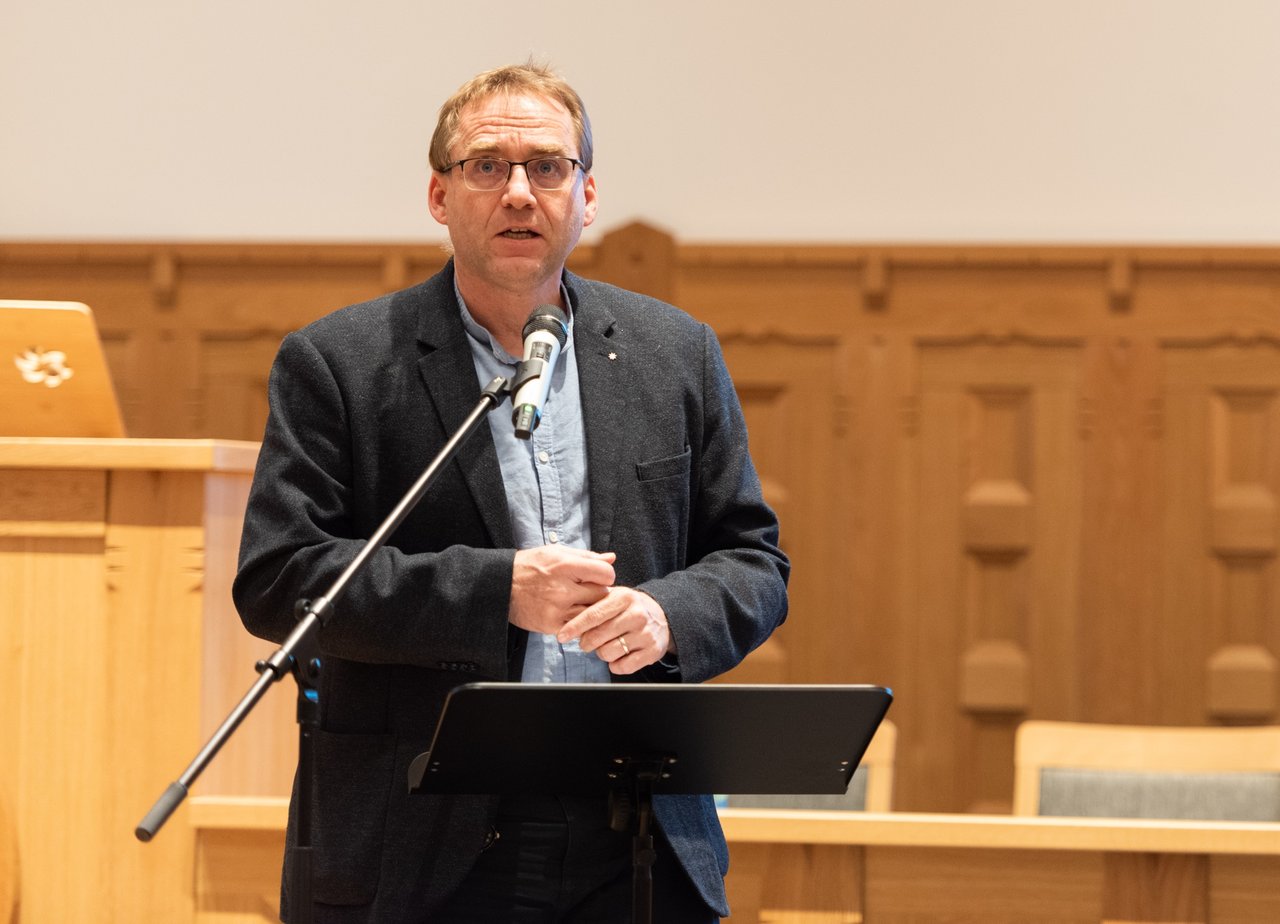
Photo: Tamás Füle
Regarding the practical steps that were taken based on this, András Harmathy stated the following:
- Revitalization and planting: where there is a fragmented community that is no longer sustainable, resources are pooled and new communities are created.
- Source congregations: communities are sent out, not just pastors, to a given area.
- "Mixed ecology" – not a "pure" system. For example, within the church, a community where the pastor believes that a service without communion is not a service can coexist with a community that considers small-group ministry to be good. Part of mixed ecology is the revaluation of the role of lay people, the search for charisms, and the development of a practice-oriented training structure that assigns knowledge according to need.
- It is a movement that is an integral part of the church's consciousness.
There is not just one type of church organizational structure
After the presentations, Zoltán Balog, bishop of Dunamellék, reflected on what had been said. He emphasized that we are all responsible for what others do, comparing those who bury the last Reformed woman in Baranya with those who plant congregations in residential areas. He recalled a question often asked by a church administrator: "Who takes care of those who are still here?" as a sign of caring for those entrusted to us, in addition to trying to reach new people.
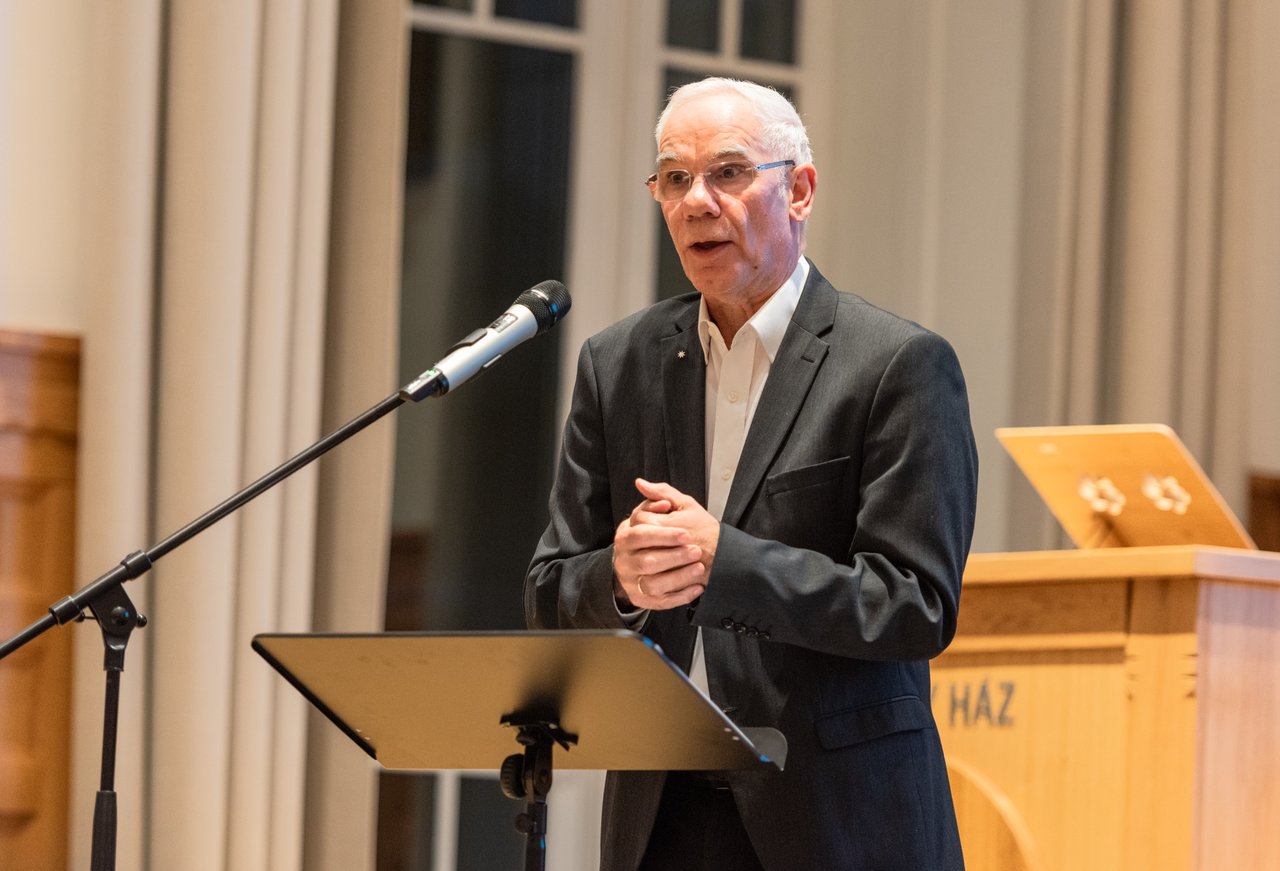
Photo: Tamás Füle
Referring back to Bálint Duráczky's presentation, the bishop of Dunamellék clearly identified two mission target groups: those who are Reformed "in name only" and those who are non-religious, in whom mutual curiosity must be awakened. He added that "it is still possible to reach people by saying that their grandfather was Reformed," and that we should not take lightly the fact that there are 160,000 children enrolled in Reformed religious education nationwide, three-quarters of whose parents have no connection to the church. Zoltán Balog added that parallels must be accepted, as there is not just one type of church organizational structure—citing the example of the caring congregations in Baranya—and at the same time, he again drew attention to the fact that the huge Reformed institutional network is both a great strength and a danger to our church.
The first step towards revitalization is prayer
The plenary part of the conference was concluded with reflections from the dioceses. Stefán Attila, pastor of Taksony, representing the Reformed Diocese of South Pest, is grateful that the church planting initiatives that started from some kind of initiative have been strengthened. However, he called it a huge challenge to reach those who do not have church roots, so it is important to rethink how to help these congregations.
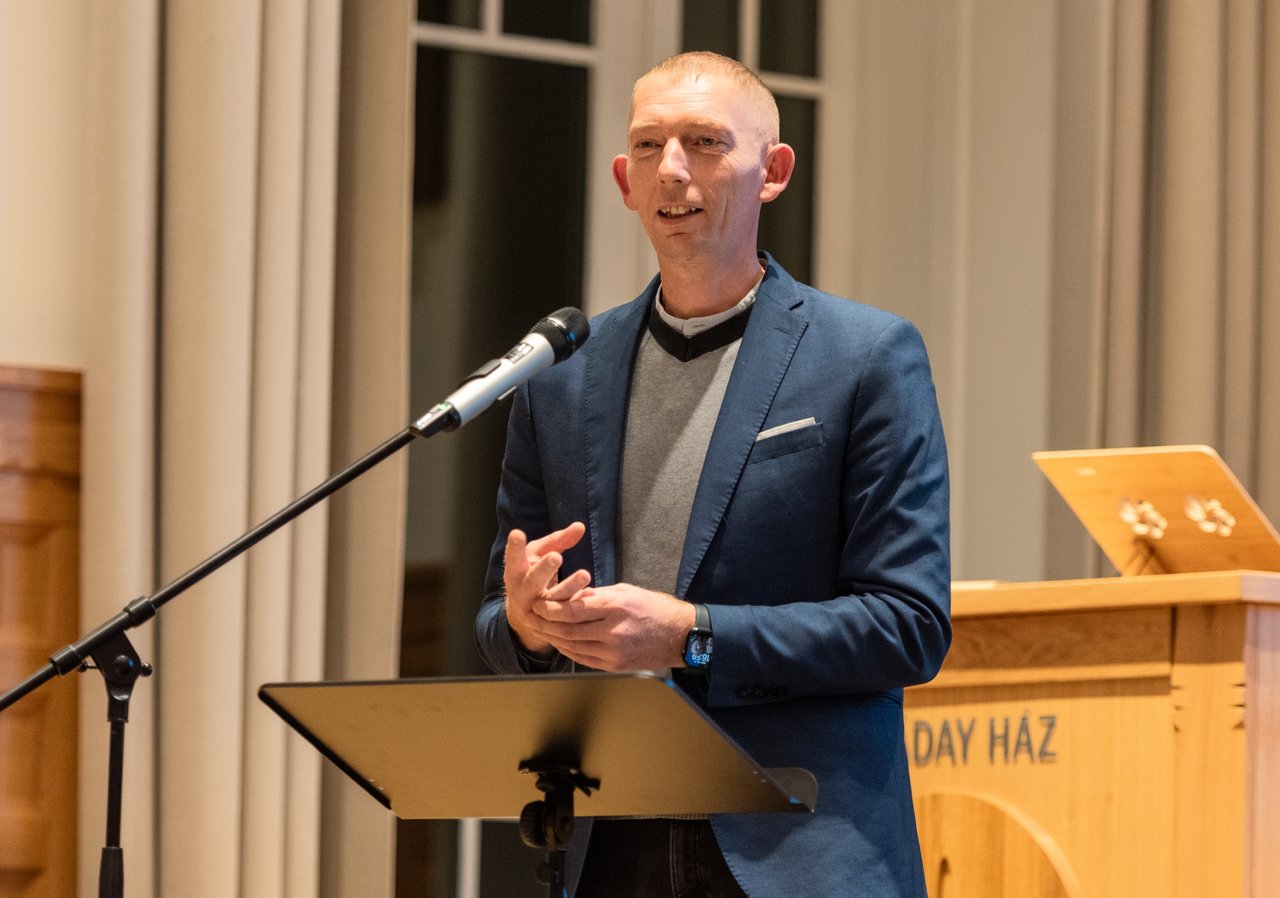
Photo: Tamás Füle
Representing Budapest-North, Pastor András Balássy of Törökőr spoke up: he said that several congregations are in need of revitalization, and at the same time, it is important to pay attention to the construction of new housing estates, primarily with community spaces, for example. He said that migration from the diocese is visible, and although traditional, family-focused ministry is present, it is becoming increasingly thin in the congregations. Referring to the example of London, he said that there are several parishes in the area that already have their own character.

Photo: Tamás Füle
Zoltán Nyilas, dean of the North Pest Reformed Diocese, considers prayer to be the first step on the road to revitalization, and at the same time asked his colleagues to serve together without competition. He added that the 54 congregations of the diocese serve at 60 preaching stations, with a current population of 600,000 in their area. Between the last two censuses, 60,000 people settled here, which, in his opinion, clearly shows how great the need is for a unified missionary vision in these congregations.
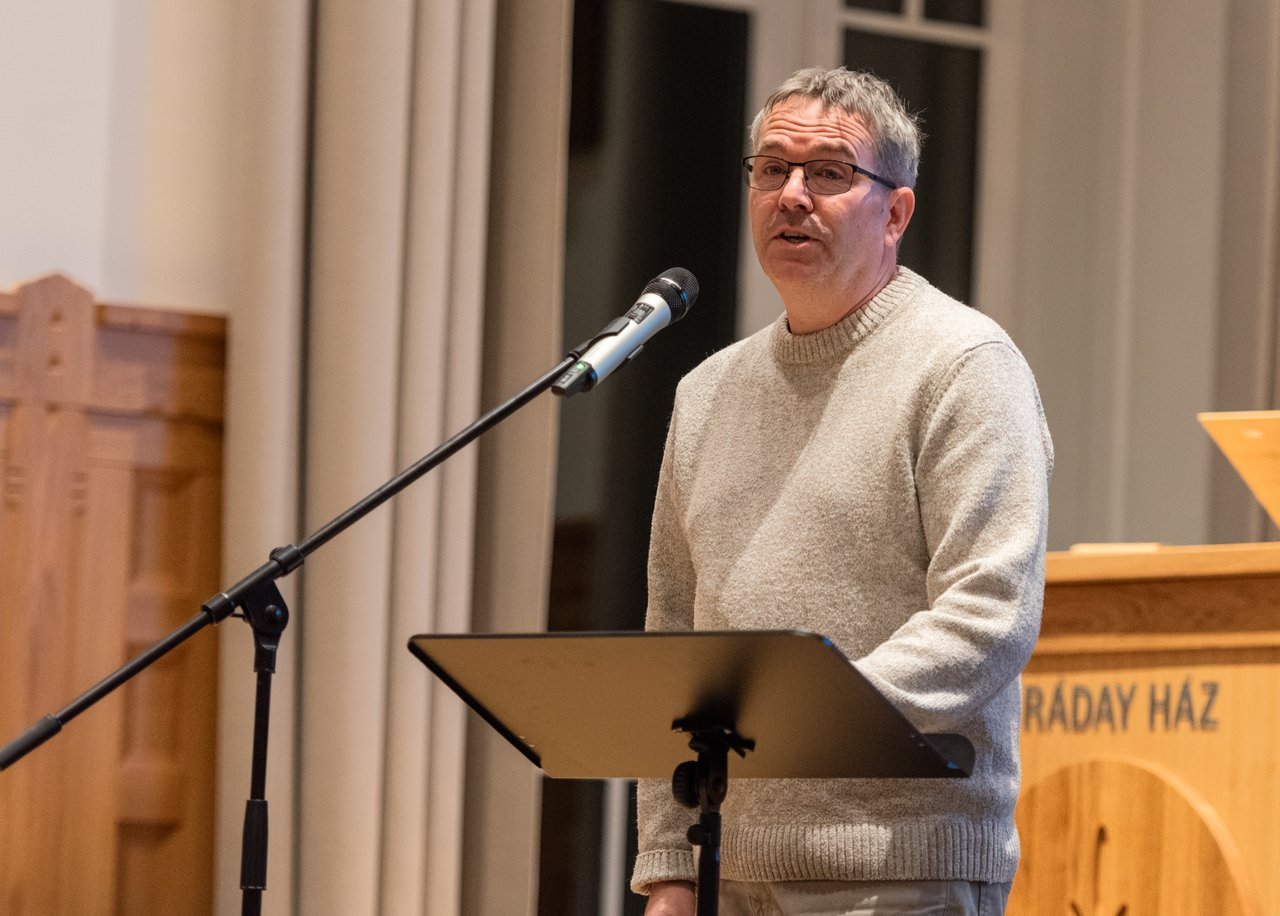
Photo: Tamás Füle
Gergely Kovács, dean of southern Budapest, concluded the series of reflections. There are currently two mission congregations in the diocese, and three planting projects are underway. He highlighted the Külső-Üllői út Parish, which began planting as a mission parish. He said that there are several areas in the capital that are considered potential planting areas, and at the same time, they see communities that may need revitalization. The dean's plans include bringing the missionary thinking of the two Budapest dioceses closer together. He concluded by saying, "Christ's generosity must be evident in our service: let the Spirit act!"

Photo: Tamás Füle
After the presentations, participants at the second Greater Budapest Mission Conference were able to discuss and reflect on what they had heard in smaller groups.